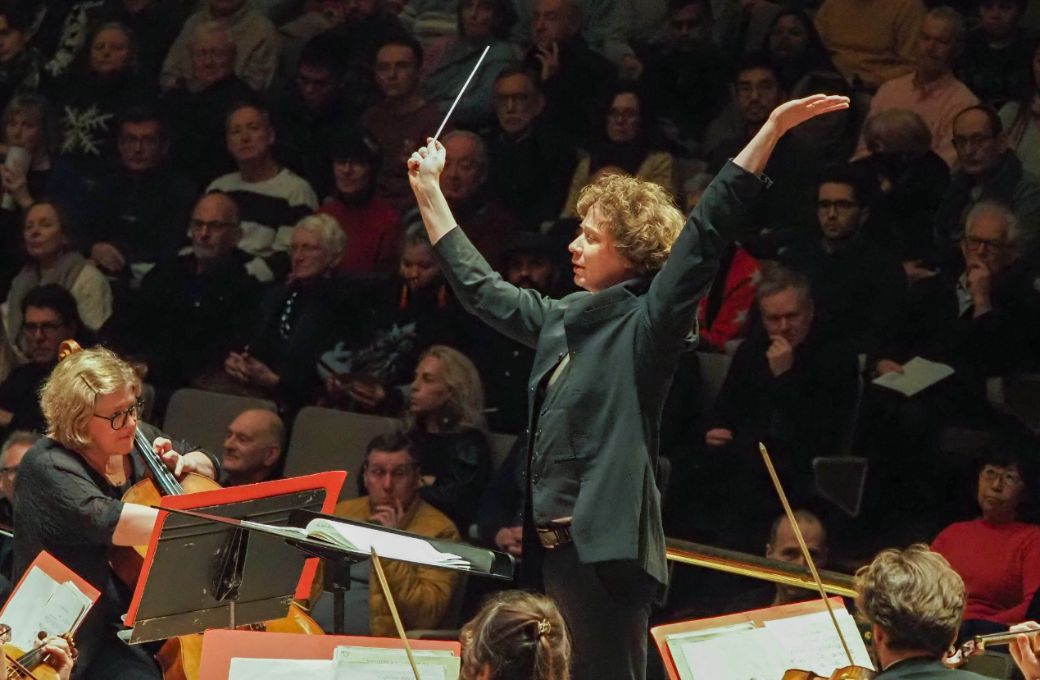This all-Russian Philharmonia programme adhered to the standard overture, concerto, symphony format, with each work set in motion by a declamatory fanfare that would (supposedly) herald something light-filled, grandiose and momentous. At least, that might have been the thinking on paper. In the event only, Rachmaninov’s youthful Piano Concerto no. 1 in F sharp minor had any sweeping grandeur about it. Elsewhere, Tchaikovsky’s Capriccio Italien sounded only intermittently ebullient and his Fourth Symphony had little sense of a deep emotional struggle, its expressive impact glossed over with a self-centred reading that began with an introduction one could hardly describe as portentous, and even less as a “fateful force that prevents the impulse to happiness from achieving its goal”, as the composer explained to his wealthy patron Nadezhda von Meck.

For all that, Tchaikovsky’s Fourth bristled with unbuttoned passion, and if a sense of doomed fate was not integral to Santtu-Matias Rouvali’s interpretation, there was a tremendous fervour from the Philharmonia players, albeit one galvanised by vigorous tempi. Incisive brass, silky strings and sparkling woodwind made distinctive contributions, none more so than Mark van de Wiel’s lilting clarinet. At times, it was difficult to tell if Tchaikovsky’s emotional turmoil was driving this performance or a pre-tour excitement generated by the orchestra’s forthcoming trip to Spain. Rouvali’s circular motions conjured spells in the Andantino, his hands having little meaning other than moving the air in front of him, and Sergei Taneyev’s astringent comment about “ballet music” within the symphony came to mind in the pizzicato-laden Scherzo where Rouvali’s breakneck tempi traded any feeling for virtuosity. There was no doubting the brilliance of technique on display even if it conjured a jewellery box ballerina. No less compelling was the finale, its festive esprit vanquishing fate in a blaze of glory.
Earlier, Rouvali had coaxed primary colours from Tchaikovsky’s Rome-inspired Capriccio Italien in a performance that combined Slavic intensity with Mediterranean sunshine. Darkness and light caught the ear convincingly, with the work’s holiday mood especially well defined, its “invitation to the dance” given an eager response in crisply articulated playing evoking a swirl of skirts from its infectious rhythms.
Rachmaninov’s First Piano Concerto that followed initially seemed tame: bright colours darkened, and scintillation subdued, the orchestra now supportive for Yuja Wang’s athletic technique. She sailed effortlessly through the first movement’s formidable demands and brought to it power, precision and poetic expression, notably in a melting dialogue for piano and cellos. For the Andante, Wang forged phrases of limpid beauty and judged to perfection the calibration of each note, partnered by sensitive orchestral playing most notably from Robin O’Neill’s eloquent bassoon. The richly scored finale provided further evidence of Wang’s virtuosity, the whole dashed off with transparent ease and propelled by tremendous gusto, soloist and players clearly enjoying themselves.


